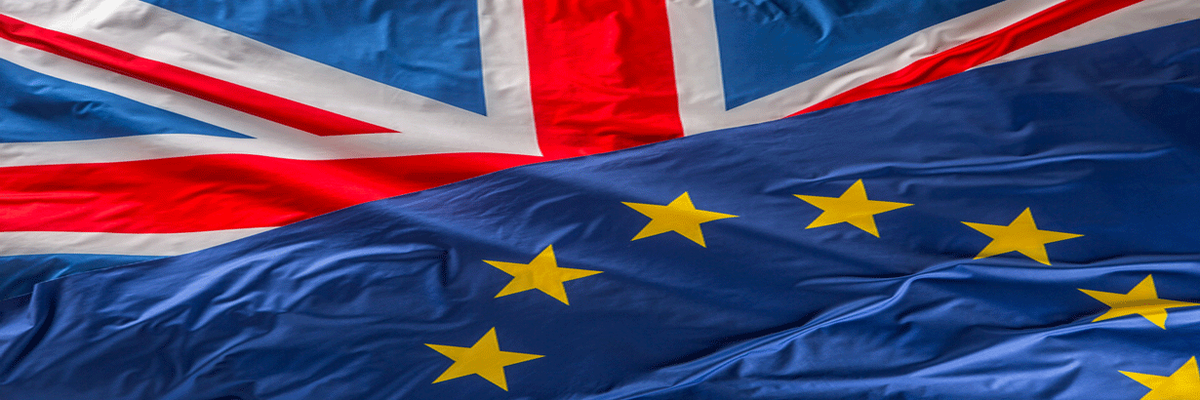Whether or not the apparently contradictory condition of ‘fevered paralysis’ exists in medicine, it certainly exists in politics and if you want to examine a case of it, take a look at Westminster this weekend.
The Brexit strategies of both the government and the official Labour opposition have collapsed. There is no agreement within both party as to how and where to move, let alone any hint of agreement between them about breaking the parliamentary stalemate. Instead there is a fever of political manoeuvring that could get us either anywhere or nowhere in the coming week. As the clock ticks to the legally-enshrined 29 March date for Britain’s departure from the European Union, what should our political leaders be doing?
Theresa May’s two-and-a-half year attempt to negotiate a deal with the EU that could get endorsed by the House of Commons finally collapsed in humiliating failure this week when MPs rejected it by a massive majority of 230, a record government defeat in modern times. In response, she pointed out that although the Commons had made very clear what it was against, it had not indicated what it might support. She offered to open talks with ‘senior parliamentarians’ (later redefined to include party leaders) to see if they could jointly find a way forward. But at the same time she made clear she was sticking with her ‘red lines’, which was interpreted by many to mean she was willing to talk but not to budge.
Meanwhile, Jeremy Corbyn’s strategy also collapsed. For months he has been saying that in view of the government’s ‘incompetence’ in negotiating Britain’s exit from the EU, the only solution was a general election so that a Labour government could be elected to power with a mandate to negotiate a better deal. His way of forcing an election was to be by tabling a motion of no confidence in the government at a point when the minority Conservative government was most vulnerable to defeat. This he did on Wednesday, the day after MPs had so resoundingly rejected Mrs May’s deal. But he lost and the government survived. He says he’ll carry on with the strategy and keep putting down no-confidence motions till one comes up trumps, but other opposition parties on whom he relies for the strategy to work say they won’t cooperate. The Liberal Democrats say they are not interested in such ‘games’.
So with the strategies of both main parties thwarted, what now? The most immediate issue is whether the option of leaving the EU without any deal should be taken off the table now. If we were to get to March 29th without a deal it would happen automatically. Mr Corbyn has said that unless it is vetoed, he won’t even talk with Mrs May. The point about removing the ‘No deal’ option is that it’s widely believed to be the only proposal suggested at the moment that would command a majority of MPs. Indeed backbench MPs across parties are scheming to put the idea to a vote next week and it is at least implicitly supported by those members of the Cabinet, such as Greg Clark the business secretary, David Gauke, the justice secretary, and Amber Rudd, the work and pensions secretary, who favour a ‘soft’ Brexit. Their number also includes the Chancellor, Philip Hammond, who was reported on Thursday to have reassured business leaders that the ‘threat’ of no deal could be taken ‘off the table’ in days.
But the Prime Minister herself is resolutely opposed. She, and those who think like her, argue that to do so would be to remove an important card in Britain’s hand during any further negotiations with the EU, since the EU is also keen that there should be a deal, even if the consequences of not having one might not be so severe for the EU. But there is also another factor constraining the Prime Minister. Taking ‘No deal’ off the table would cause uproar among the hard-line Brexiteers on her backbenches and in the wider Conservative Party. That’s because they know that such a move would inevitably entail postponing the date of Britain’s exit and they fear it might well jeopardise Brexit altogether. There would certainly be Cabinet resignations if Mrs May were to abandon ‘No deal’ as an option and her own position would come under threat.
At the same time that Mrs May is facing pressure to make that move, Mr Corbyn is under pressure of his own on another way to break the deadlock. Back at the Labour Party conference in the autumn, the party agreed that securing a general election was its first priority but that if that failed, all other options were up for consideration, including advocating putting the whole issue back to the electorate in a second referendum. Now that the general election gambit has failed, many Labour MPs, backed by strong support within the membership of the party, are pressing him to make this official Labour policy.
This too might be a way to break the deadlock because, with official Labour support, there might well be a majority in the Commons for a second referendum, a policy already backed by the Liberal Democrats, the Scottish Nationalists and other opposition MPs and likely to attract support from some Tory backbench Remainers. But Mr Corbyn is resisting this pressure.
For one thing, he does not himself share the pro-EU sentiments of most of those in his party advocating a second referendum: his personal view has always been much more Eurosceptic. Secondly, he fears such a move would alienate many Labour voters especially in northern seats that voted strongly for Leave in the first referendum. Labour voters are nothing like as pro-EU as the bulk of Labour MPs or of party members and they might see official Labour backing for a second referendum as part of an establishment ‘stitch-up’ to deny them what they voted for. He might also see a trap. There would seem to be no way at all that the Prime Minister would agree to a second referendum since all but a small minority of her party are vehemently opposed to it. So if the House of Commons indicated its support for one on the back of Labour’s official support, Mrs May might feel tempted to call a snap election in which the Conservative Party would claim to be the only party that could guarantee Brexit. Mr Corbyn may fear she might well win such an election.
So it is not surprising that no one can see a clear way that an effective majority of MPs can be assembled to end the paralysis. Meanwhile, an exasperated EU is waiting for us to make up our minds what exactly it is that we do want.
This, according to the former Prime Minister, Tony Blair, is the fundamental problem. He told me in an interview on Today on Thursday that the issue was not so much about what deal was or wasn’t possible: it was about choices, not deals. He said that supporters of Brexit, and certainly the government, had never made up their minds whether they wanted what he called a ‘pointless’ Brexit or a ‘painful’ one.
The “pointless” option was the so-called ‘soft’ Brexit, in which Britain stayed closely allied to the workings and rules of the EU, but outside it. It would mean we would still be abiding by the rules without having a say over them. Or we could have a ‘hard’ Brexit, one in which we achieved freedom from those rules but which would (in his view) be ‘painful’ at least in the short term, because all the established ways of doing trade with the EU, our biggest trading partner, would be immediately disrupted and that, inevitably, would be damaging to the economy. Until we made up our minds on this point, he argued, we’d never get anywhere. And because the clarity of this choice had never been put to the public in the first referendum, there needed to be a second one in which voters would also have the option of remaining in the EU, his own preference.
This, then, is the context in which government ministers will be talking to ‘senior parliamentarians’ over the weekend before the Prime Minister makes a statement on Monday about her Plan B. What should she say? Should she agree to remove ‘No deal’ from the equation? Should Jeremy Corbyn back a second referendum? What other ways might there be for ending the paralysis?
If you’ve got any ideas, tell our political leaders. But let us know first.









